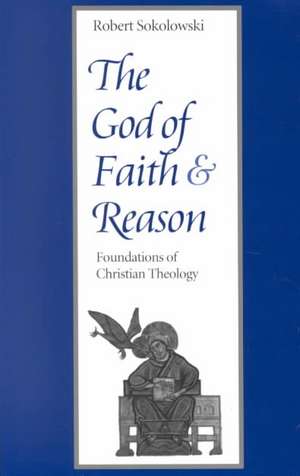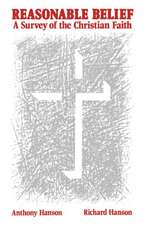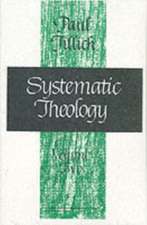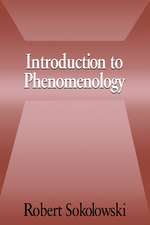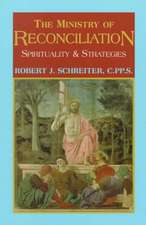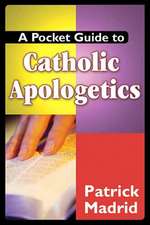The God of Faith and Reason Foundations of Christian Theology
Autor Robert Sokolowskien Limba Engleză Paperback – 31 dec 1994
Preț: 151.22 lei
Nou
Puncte Express: 227
Preț estimativ în valută:
28.94€ • 30.10$ • 24.25£
28.94€ • 30.10$ • 24.25£
Carte tipărită la comandă
Livrare economică 13-27 martie
Preluare comenzi: 021 569.72.76
Specificații
ISBN-13: 9780813208275
ISBN-10: 0813208270
Pagini: 194
Dimensiuni: 140 x 217 x 13 mm
Greutate: 0.27 kg
Editura: Catholic University of America Press
ISBN-10: 0813208270
Pagini: 194
Dimensiuni: 140 x 217 x 13 mm
Greutate: 0.27 kg
Editura: Catholic University of America Press
Textul de pe ultima copertă
How is it that Christian faith can be said to be in accordance with reason and at the same time to transcend reason? On the one hand, the concordance of faith with reason appears to reduce faith to rational thinking and to natural human experience; on the other hand, the difference between faith and reason seems to make belief unreasonable and arbitrary. Here Robert Sokolowski treats this theological difficulty through an examination of the Christian understanding of God that focuses on God the creator and the world he created. In so doing, he demonstrates how the Christian concept of God preserves both the integrity of reason and the distinctiveness of faith. Sokolowski begins with a statement of the Christian understanding of God developed in terms provided by St. Anselm, in whose writings the issue of faith and reason surfaces in an historically significant way. He next brings to light the special character of the Christian understanding of God by contrasting it with the pagan understanding of the divine. While pagan and other natural religions see god as the most powerful part of the world, Christianity understands God to be separate from the world, not added to in any way by the act of creating it. This understanding of God and the world lies behind the belief in Creation, and is shown to provide the context for the other Christian mysteries. The author also shows how the Christian understanding of God and the world helps clarify the difference between natural human virtues and the theological virtues of faith, hope, and charity. In an appendix, he deals with the relationship between political philosophy and Christian revelation and speaks of the place of politics and politicalreason in Christian belief.
